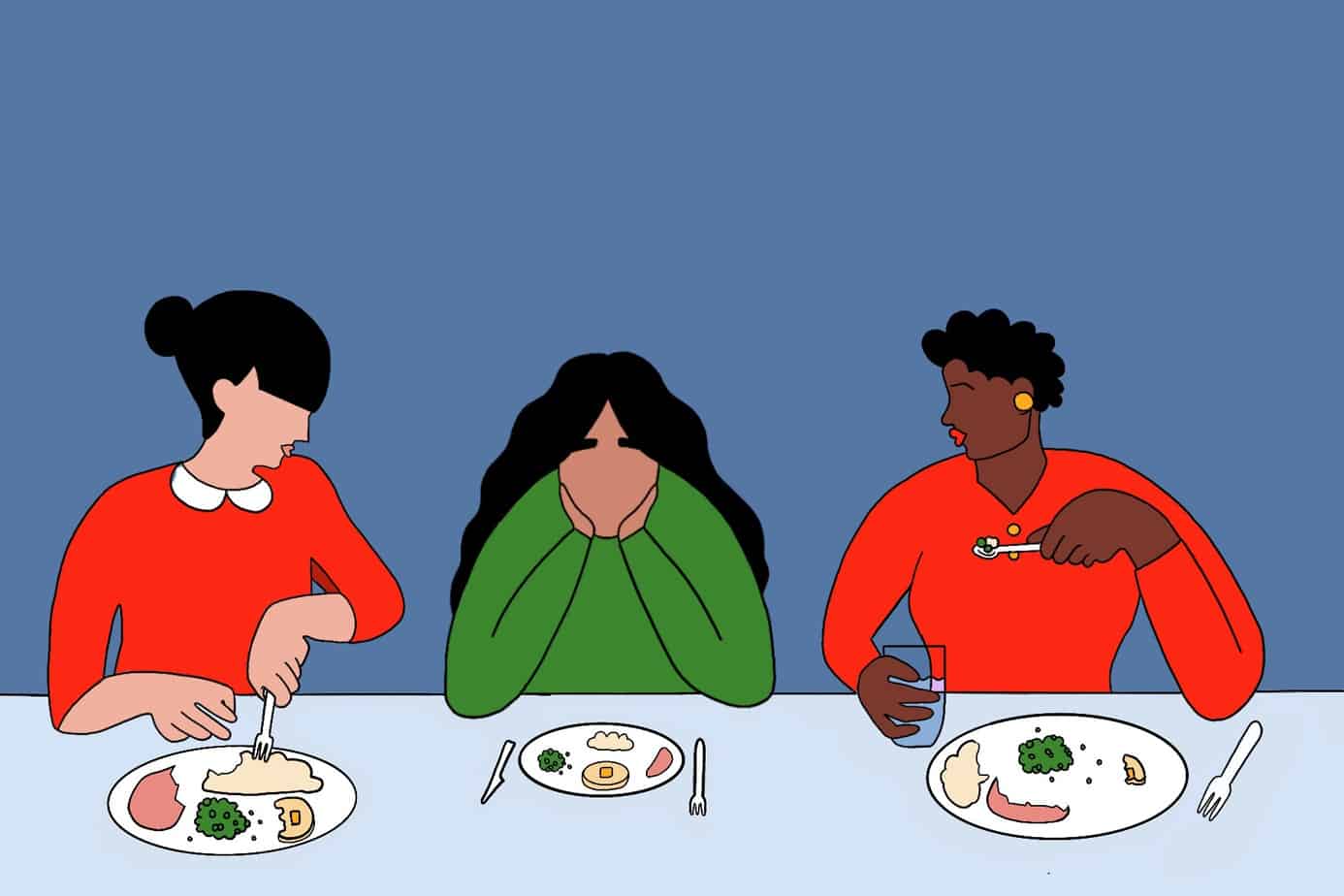Eating disorders are very complex mental illnesses. They are usually immensely difficult to recognise, and not at all easy to recover from. Since they are such complicated illnesses, we must be mindful of what we say to those managing an ED. Even the most well intentioned things can be triggering for someone who is suffering. We consulted psychotherapist Nisha Irfan to help bring to light the do’s and don’ts of supporting somebody with an ED.

Things To Avoid Saying To Someone With An Eating Disorder
“Why don’t you just eat?”
An ED is about more than just food – they are mental illnesses. Therefore, making it all about their eating habits can be belittling. The issue is never as simple as the outsider thinks it is; the illness is much more deeply rooted.
“You look well!” or “You seem healthy!”
According to Nisha, commenting on one’s weight can be quite triggering. With an ED comes mental changes, and so someone managing one may perceive such comments differently to how they are intended. Nisha says: “For instance, someone with anorexia or bulimia may need to gain weight as a part of treatment. The eating disorder will cause any comment noting a change in appearance to be confirmation of the weight gain, therefore to an eating disordered mind, “healthy” would translate to “fat” and could trigger a relapse.”
“Wow! I wish I had your willpower”
This statement can validate the person’s ED, making it sound encouraging to continue with those eating habits. It gives them the boost that whatever they are doing is working. Their ED is not a lifestyle, a diet, or a choice – it is an illness.
“Maybe you should eat fewer carbs,” or “Why don’t you try to cut out sugar?”
Giving dietary tips to someone with an eating disorder, no matter how well intended, can be problematic. Nisha explains that “eating disorders are not a lifestyle choice, they are biologically-influenced medical illnesses that require intervention by specialists. Giving somebody with an eating disorder dietary advice could prove to be a trigger, sending across a signal that their body is not good enough as is.” Also, if you are not a professional, it can be dangerous to give them advice without having proper knowledge about their individual conditions.
“I ate so much today,” or “I look so fat”
Avoid making comments about your own body in front of those with an ED. Many people who are going through this are hyper-aware of what people around them are eating, how much they weigh, and how they look in their clothing. Commenting negatively on your own body can make a person with an ED even more focused on weight and food issues, says the therapist.
“Did you go to therapy today?” or “Did you take your meds?”
According to Nisha, people who are managing an ED often carry a lot of shame. Therefore, asking them such questions depends on how you phrase it. If it is done in an interrogatory manner, or as if you are intrusively checking up on them, it may come off as threatening, or as if you are testing them.

What Should You Do If Your Loved One Is Managing An ED?
Nisha explains that if done compassionately and gently, questions can prove to be encouraging and supportive. For example, ask them “how was therapy this week?” or “are the medicines causing any side effects?” The key is to offer curiosity, not examination.
Moreover, instead of making negative comments about your own body, focus on accepting yourself as you are. Being around body-positive people is helpful to people with eating disorders. The therapist advises to eliminate fat-talk from your conversations, even if you don’t think you know anyone who has an eating disorder.
More guidance given by Nisha involves learning more about eating disorders and the underlying causes so that you are attuned to their experience and can offer them empathy without judgment. Also, of course, encourage someone struggling to seek professional help. She suggests practicing active listening skills, and hearing them out when they have a relapse instead of shaming or criticising. Further, Nisha recommends being mindful of their triggers but not to be afraid to eat normally in front of someone with an eating disorder as it can help set an example of a healthy relationship with food.

A Few Helpful Things To Say:
- “You are so much more than your eating disorder”
- “This must be so tough but I am proud of how far you’ve come”
- “I am here for you, tell me what you need from me”
- “It may seem as though I don’t understand at times but I am here and will try to help as much as I can”
- “I care about your wellbeing”
- “How are you feeling today, at this moment?”









What do you think?
You must be logged in to post a comment.